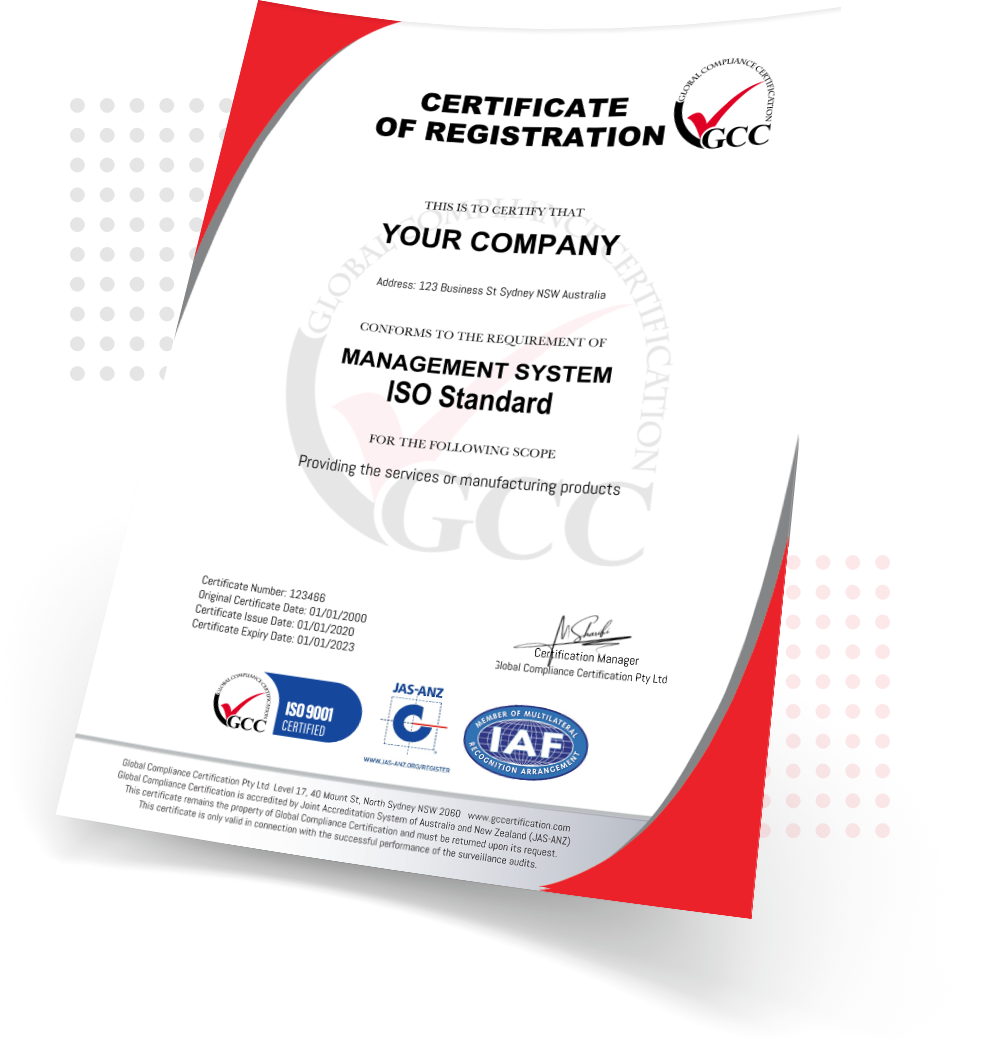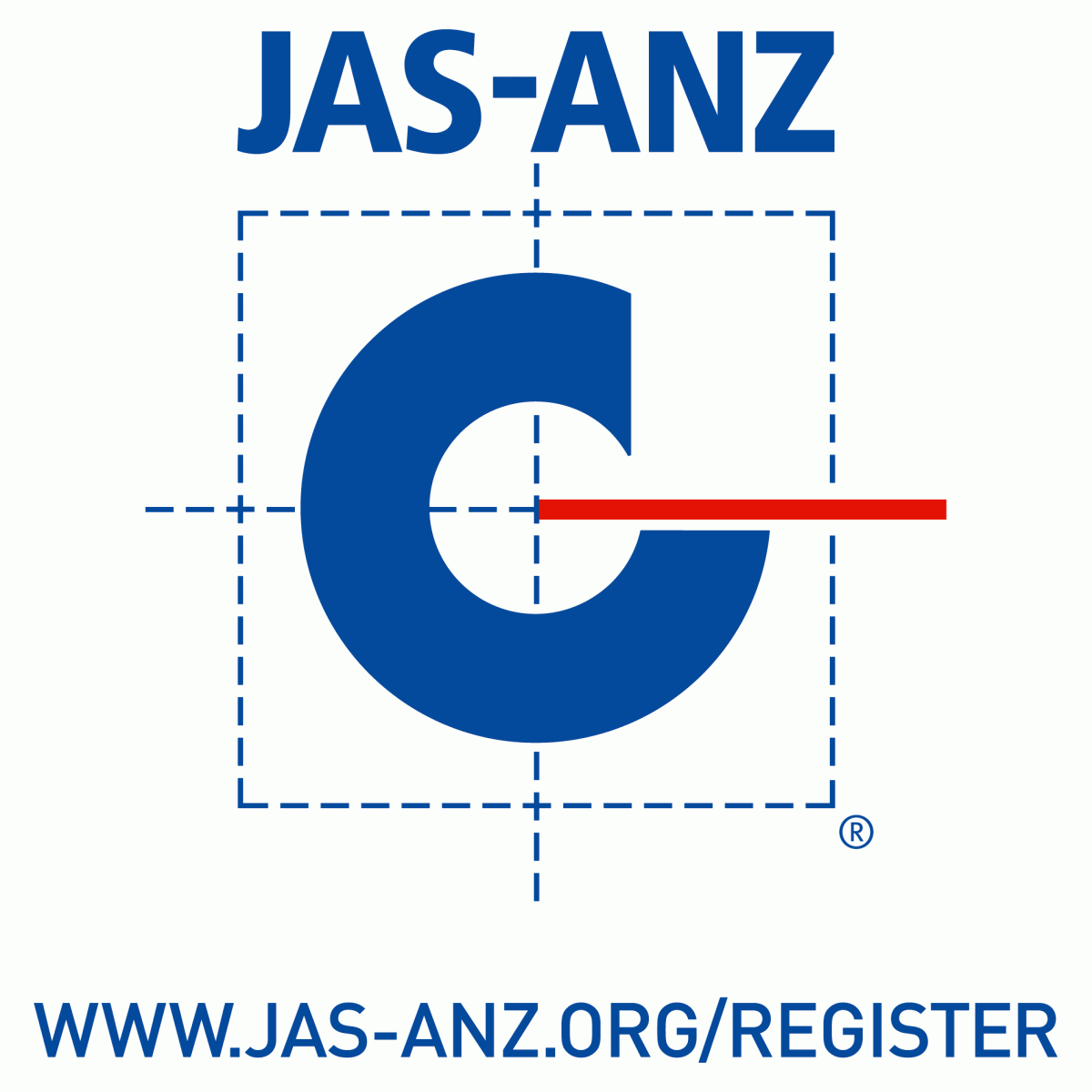
ISO 9001 Quality Management System
ISO 9001 is a standard that sets out the requirements for a quality management system. The standard is designed as a framework to help guide an organisation towards continual improvement and an increase in customer satisfaction.
About ISO 9001 Quality Management System
This standard is designed to provide an international baseline for quality management, which can be used by companies around the world, regardless of their industry or organisational size. ISO 9001 has become the most widely used and implemented quality management system in the world.
ISO 9001 Principles
- QMP 1 – Customer focus
- QMP 2 – Leadership
- QMP 3 – Engagement of people
- QMP 4 – Process approach
- QMP 5 – Improvement
- QMP 6 – Evidence-based decision making
- QMP 7 – Relationship management
Quick Quote
Fill out the form below to find out more

Focus of ISO 9001
- Documentation, planning, and processes that support your Quality Management System
- Your organisation’s leadership and their responsibilities
- Work environment and resource management
- How a product moves from idea to delivery
- Quality Management System analysis with Corrective and predictive actions taken and Regular audits and reviews
Benefits of ISO 9001 Certification
- Sustainable quality assurance
- Increases satisfaction among customers and employees
- Attracts investment, enhances brand reputation and removes barriers to trade
- Provides an advantage over competitors who are not certified
- Improves profitability through process improvement and a higher return on assets
- Increases customer confidence and international acceptance
- Improves business performance and manages business risk
- Streamlines operations and reduces waste and increases business savings
- Encourages internal communication and raises morale
- Reduces new employee on-boarding time and ensures staff competencies
Certification Process
Certification involves GCC assessing your organisation in order to ascertain that management systems meet the requirements of one or more recognised standards. Becoming certified to a nationally or internationally recognised standard is of great benefit to an organization. It improves overall performance, builds confidence within stakeholder groups and broadens the scope of new opportunity.
Application/ Contract
- Application for certification by client
- GCC will review and provide certification proposal
- Client accepts the agreement and return to GCC
- Audit dates will be booked
- GCC conducts Gap Analysis (optional)
Certification Audit/ Transfer
- Stage 1 Audit, The Audit team will assess documentation and readiness of management system for Stage 2 Audit
- Stage 2, Certification Audit, Audit team will assess implementation of system and will verify any issues outstanding from the Stage 1 Audit.
- Organisation will be recommended for Certification after review and positive decision by the independent GCC certification Authority,
- A Certificate will be issued
Maintaining certification
Surveillance Audits
Each issued certificate has a three-year life period. Upon certification, an audit program will be created for regular audits over the three-year period. These audits confirm company’s on-going compliance with specified requirements of the standard. At least one surveillance audit per year is required.
Read our policy for use of Certification Marks
Re-Certification
Re-Certification
The certification expires within 3 years and a re-certification Audit will be conducted prior to the expiry date to ensure that Management System is maintained.
Frequently Asked Questions
ISO 9001 outlines the standards an organisation must reach in terms of its quality management system (QMS). Without standards in place for maintaining the quality of your work and the service you provide to your customers, it can be difficult to achieve positive growth.
While many perceive ISO 9001 accreditation to be the realm of big businesses, particularly manufacturing businesses, any organisation can benefit from being ISO 9001 certified. Having a certified QMS elevates your credibility and shows your customers that you are committed to providing a reliable and high-quality service.
In a word, yes! Whilst ISO 9001 has been around since 1987, updated versions of the standards it requires have been published to keep up with the fast-paced world we live in. In fact, ISO 9001:2015 was introduced fairly recently to enable modern businesses to ensure their QMS was still relevant in terms of modern business practices.
ISO 9001 is based on seven core principles. These are your customer focus, leadership, how you engage people, your process approach, how you approach improvement, evidence-based decision making, and relationship management. By analysing your company’s approach to each of these elements, ISO 9001 helps to identify where improvements are required to ensure the longevity of your company’s success.
While there are no guarantees, ISO 9001 can help you to improve your success in several ways.
Firstly, the areas that need working on that are identified by the ISO 9001 auditing process will help you to focus on the parts of your business that are holding you back from reaching your potential.
Secondly, by showing people that you have taken the time to become ISO 9001 accredited you are proving your commitment to giving the best quality service to your customers possible. This is likely to improve customer confidence, and thus help you build your client base, boosting profits.
Furthermore, increasing success is as much about reducing costs as it is about increasing profits. By going through the ISO 9001 accreditation process you may find areas of your business that can be streamlined, cutting costs and improving efficiency.
A QMS certification such as ISO 9001 has an impact on your own employees as well as your customers. It is likely that changes made to comply with ISO 9001 standards will encourage better internal communication and raise office morale, as employees feel proud of the company they work for.
GCC Training
Empower your team with our self-paced efficient training.








